Fritextsökning
Artiklar per år
Innehållstyper
-
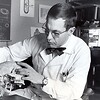
When carelessness, forgetfulness and coincidence become the researcher’s best friend
Forgetfulness, coincidence and a stroke of luck hardly make up a fruitful method of serious research. Or do they? Actually, a number of important medical advances have come about thanks to completely random incidents and the open-mindedness of scientists
-
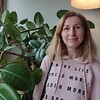
Ukrainska forskaren: ”Jag kan inte hjälpa mitt folk men jag kan berätta om kriget”
Den 24 februari klockan 05 vaknade Lesya Demchenko och hennes familj till ljudet av bomber i Kyiv. När hon tittade ut från balkongen såg hon människor som packade sina bilar för att fly och mörka moln på himlen efter rök där bomberna träffat byggnader.
-

Björn Ursing: Physicians new role in AI driven healthcare
”AI could be the key we need for tomorrow’s healthcare, but it is not a stand-alone tool”, writes Björn Ursing in a column about how the role for physicians changes in the era of AI.
-
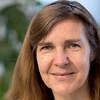
CAR-T therapies give continued hope: “Almost half of the patients have become disease-free”
When the first CAR-T therapies appeared, hopes were raised for the effective treatment for critically ill cancer patients. After a somewhat sluggish start, about 90 patients in Sweden have now been treated with this method. “Almost half of them have become disease-free, at least of those treated with Yescarta, which are the ones I know best,” says Gunilla Enblad, Chairman of the national working group for CAR-T treatment.
-
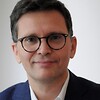
Samuel Lagercrantz: Immunotherapy against cancer is still in its early stages
For more than 100 years, researchers have tried to target the body’s own immune system to fight cancer cells. They have occasionally been laughed at and ridiculed by the medical establishment. However, from our perspective today, we can sum it up
-

Novo Nordisk Fonden stöder hjälparbete i Ukraina
FN:s flyktingorgan UNHCR får 5 miljoner danska kronor från Novo Nordisk Fonden för att ge akut hjälp i Ukraina.
-
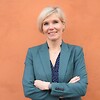
Marie Gårdmark: Finally, it’s time for a revision of the EU pharma legislation
A challenge for the EU Commission is to deliver a new framework that will also take care of another “pillar” of the pharmaceutical strategy, namely, to ensure that new medicines will be available for all citizens in Europe, writes Marie Gårdmark in a column.
-
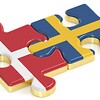
“Together Stockholm-Uppsala and Medicon Valley can make Scandinavia a leading life science region”
“Denmark, Sweden, Norway and Finland all have national life science strategies, but the Swedish strategy is the only one explicitly emphasizing the Nordic dimension. But what if the leading life science nations, Denmark and Sweden, joined forces, took the lead and pioneered Nordic life science collaboration? Wouldn´t we then be able to "bake a bigger cake?", writes Anette Steenberg and Ulf G. Andersson in a debate article.
-
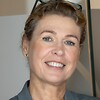
Anna Törner: Success requires bold decisions!
“Doing things right is fine, but doing the right things as soon as possible is even better”, writes Anna Törner in a column.
-
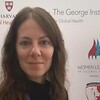
Giulia Gaudenzi: Innovation for good
"I challenge the innovator landscape to take a mental leap. Relying on innovation-solely to end inequality is not enough, therefore consciously and purposively – we need to engage bravely with the politics of poverty and scarcity. Even in life sciences", writes Giulia Gaudenzi in a column.
-
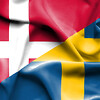
Sweden and Denmark – this is how they choose their strategies
Scandinavia’s two major powers in pharmaceutical research have developed strategies for growth in life science, and both countries aim to become world leaders.
-
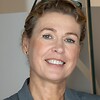
Anna Törner: You won’t find this many Concorde projects anywhere else
"Suddenly Concorde projects seem reasonable in life science because it´s about life and death", writes Anna Törner in a column.
-
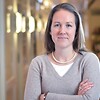
Column: Why there cannot be a complete cure for cancer – but there is certainly another way!
"Is there a new way we need to be thinking about how to prevent cancer?" Lucy Robertshaw reflects upon which is the smartest way to beat cancer.
-
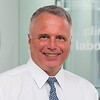
New diagnostic test soon ready for the market
-
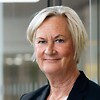
Sprint får ännu ett patent godkänt
Sprint Bioscience har fått förhandsbesked om godkännande för ännu ett patent för sina Vps34-hämmare, som har potential att göra tumörer mer känsliga för behandling av immunonkologiska läkemedel.
-
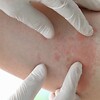
Lovande resultat för oral terapi vid atopiskt eksem
Bättre läkning av huden efter oral behandling, enligt nya studieresultat.
-
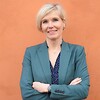
Marie Gårdmark: Do EMA and FDA talk to each other?
Of course they do! The collaboration started already in 2003, writes Marie Gårdmark in a column.
-
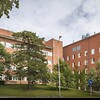
Nu startar ombyggnation av Retziuslaboratoriet
Planen är att Campus Solna tillsammans med Hagastaden ska bli ett life science-mecka.
-

Sana Alajmovic: ”Vi måste tala om de stora visionerna – bygga nästa Astra”
Sigrid Terapeutics grundare och vd, Sana Alajmovic, hamnade på listan Framtidens kvinnliga ledare.
-
Helena Strigård: The rise of the community
Sweden Bio´s CEO is looking back at the last decade of development in the industry. Something has shifted in the interdependence between small and larger companies.
-
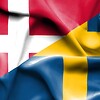
Swedish and Danish Life Science – are there still untapped synergies?
With the increasing developments in life sciences over the past decade and strong support for the sector’s strategic importance from both the Sweden and Danish governments, the timing of The Future of Swedish & Danish Life Science conference could not be better. A one-day conference on ongoing collaborations, new directions and required future investment will held on April 2nd at Medicon Village in Lund.
-
Coordination of world-class research facilities
Four unique world-class research facilities are located just a few hours apart. Properly utilised, a Nordic centre for world-leading life science innovation and research could become a reality. Kajsa M Paulsson is the project leader for HALOS, driving the idea forward.
-
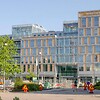
A world-class research village
Eight years ago, Medicon Village was set up in Lund. Since then, this hub for research, innovation and business has developed enormously, and today the life science village is home to over 150 organisations, employing more than 2,200 people.
-
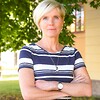
Krönika: Can regulators keep up with innovation?
New technology has increased the understanding of disease mechanisms and enabled approval of products targeting small but specific patient populations; sometimes referred to as precision medicine. Gene- and cell therapies have reached the market, exemplified by CAR-T cells, and the research pipeline is promising. In addition, the medical device field is constantly growing creating new solutions to address patient needs.